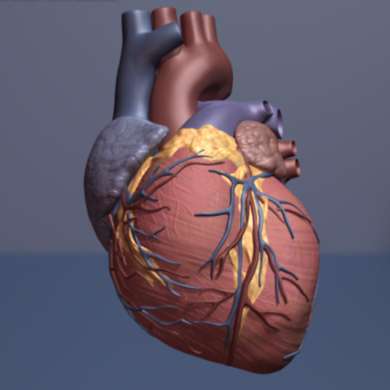Falling risk of heart disease among survivors of child cancer since the 1970s

There has been a measurable decline in serious heart conditions among adult survivors of childhood cancer since the 1970s, finds a study in The BMJ today.
The findings suggest that efforts to reduce exposure to the most toxic effects of anticancer treatment, including radiotherapy, seem to be working.
Many adult survivors of childhood cancer are at risk of early death and long term health conditions related to treatment. For example, cardiac radiation can cause heart and circulatory problems in later life.
In recent years, cancer therapy has focused on improving cure rates while trying to minimise long term adverse effects, but the impact of these changes in survivors is not clear.
To fill this evidence gap, US researchers set out to assess whether these changes are associated with altered risks for cardiac events among adult survivors.
Their findings are based on more than 23,000 adults from the Childhood Cancer Survivor Study who had survived the most common childhood cancers, diagnosed before age 21 and treated in the 1970s, 1980s and 1990s.
Using questionnaires, five cardiac conditions—heart failure, coronary artery disease (narrowing of arteries), heart valve defects (valvular disease), damage to the heart tissue lining (pericardial disease) and heart rhythm problems (arrhythmias) – were recorded.
Cardiovascular risk factors, such as diabetes, high blood pressure and cholesterol levels, smoking, exercise and weight, were also recorded.
The number of survivors exposed to cardiotoxic chemotherapy increased in more recent decades, but the proportion receiving higher doses decreased. Exposure to cardiac radiation declined from 77% of survivors treated in the 1970s to 40% treated in the 1990s.
After taking account of potentially influential factors, risk of coronary artery disease decreased significantly from 0.38% in the 1970s to 0.24% in the 1980s and 0.19% in the 1990s. This was largely due to a strong decline among survivors of Hodgkin lymphoma.
The results also suggest a decline in the risk of heart failure among patients treated in the 1990s, although it was not statistically significant. Risk of other cardiac outcomes remained unchanged.
Traditional cardiovascular risk factors high cholesterol and blood pressure also strongly increased the risk for most cardiac conditions, providing important insights to help improve outcomes for cancer survivors, note the authors.
This is an observational study, so can’t establish cause, added to which it relied on self-reported cardiac outcomes, and almost a third of eligible survivors chose not to participate, thus potentially affecting the results.
However, the researchers suggest that historical reductions in radiotherapy exposure appear to account for some of the decline in coronary artery disease, particularly among survivors of Hodgkin lymphoma.
“These results suggest that efforts to modify cancer therapies in children and promote health surveillance for survivors are beginning to show benefits not only in overall survival but also in late adverse cardiac effects,” they conclude.
Survivorship issues are extremely important to patients, their families, and their doctors, say Mike Hawkins at the University of Birmingham and colleagues in a linked editorial.
This study adds to a growing evidence base that efforts to reduce the cardiotoxicity of treatments seem to be working, they write.
Source: Read Full Article


